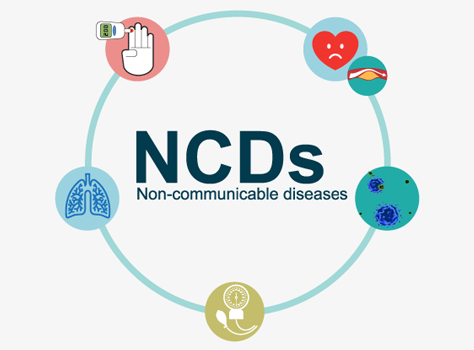… call for multi-stakeholder engagement to avert potential crises
An unintended, and often overlooked, consequence of the COVID-19 pandemic is its domino effect on healthcare delivery systems, particularly for persons living with Non-Communicable Diseases (NCDs); and deliberate measures must be put in place to address/remedy the situation as it can have significant economic implications for national post-pandemic recoveries, a panel of health experts has stated.
They suggested that while Africa seems to have been spared the worst of the pandemic with regard to number and rate of infections, the number of the critically ill as well as extended restrictions on public gatherings, COVID-19 has still brought to the fore deficiencies in healthcare delivery, especially in sub-Saharan Africa (SSA) – and there is the looming twin-danger of national governments’ direct expenditure on curative care, as well as the potential loss of productivity from an unhealthy populace.
Recent reports by the World Health Organisation (WHO) suggest that NCDs are responsible for an estimated 71% of deaths globally, with approximately 40% of the 41 million people who die from NCDs coming from the productive age group of 30 to 65 years.
Furthermore, diabetes, which is used as a proxy for the other chronic NCDs – cancer, as well as cardiovascular and respiratory diseases – is estimated to cost SSA some US$59.3billion (or 2 percent of GDP) by 2030, as expected illness rates are projected to double over the course of the next decade.
Speaking during a webinar on the theme ‘Together for better health’ hosted by Ecobank, the Professional Responsible for NCDs at West African Health Organisation (WAHO), Dr. William Bosu, stated that more must be done to increase awareness of the true extent to which NCDs, if left unchecked, can impact the economy.
He suggested that to see gains, timely interventions must be undertaken to address issues on three fronts: legislation, policy and funding.
According to him, while legislation stipulating key areas to address is a necessity, it will only be effective when there are clear-cut, time-bound targets to pursue. “How can we expect results if we don’t have timelines or clear-cut targets?” he asked as he called for dedicated funding, as opposed to a scatter-gun or reactive approach to dealing with the menace.
He further suggested that the multi-stakeholder engagements – not limited to health institutions – must begin at the nascent stages; arguing that bringing key persons and situations when processes are far advanced will only serve to truncate the process.
On her part, Regional Chair-International Diabetes Federation, Elizabeth Denyoh, called for greater education of primary health caregivers and first-responders, saying that the current specialist to patient ratio is not sustainable. “We need NCD education to be incorporated in the basic nursing curriculum,” she suggested.
She further called for greater transparency with donor funds, as this will decrease incidents of donor-fatigue. She added that prudent use of funds will include offering scholarships and financial incentives to key medical personnel.
Taking his turn, Head, Health & Care Unit, Africa Region International Federation of Red Cross and Red Crescent Societies, Dr. Adeiza Ben Adinoyi, called for a combination of moral suasion, rewards and recognition – as well as punitive measures, as some of the actions that can be taken to rein-in actors, especially companies whose commercial interests are at variance with steps being taken to address the burden of NCDs.
The webinar formed part of the Ecobank Day activities for Anglophone West Africa (AWA) operations, which for the past three editions has focused on health.










